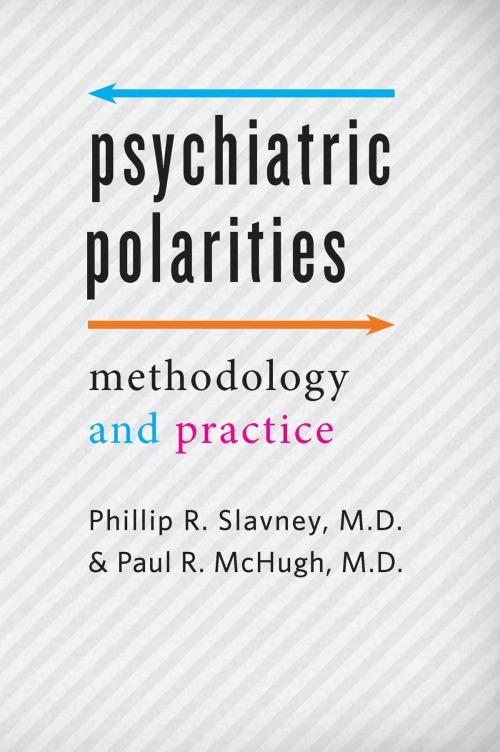Psychiatric Polarities
Methodology and Practice
Nonfiction, Health & Well Being, Medical, Specialties, Psychiatry, Psychology| Author: | Phillip R. Slavney, MD, Paul R. McHugh, MD | ISBN: | 9781421419770 |
| Publisher: | Johns Hopkins University Press | Publication: | January 15, 2016 |
| Imprint: | Language: | English |
| Author: | Phillip R. Slavney, MD, Paul R. McHugh, MD |
| ISBN: | 9781421419770 |
| Publisher: | Johns Hopkins University Press |
| Publication: | January 15, 2016 |
| Imprint: | |
| Language: | English |
In this companion volume to their widely acclaimed Perspectives of Psychiatry, Phillip R. Slavney, M.D., and Paul R. McHugh, M.D., argue that the discontinuity of brain and mind is the source of much of psychiatry’s discord, for it leads psychiatrists to think about their discipline in terms of polar opposites: conscious or unconscious; explanation or understanding; paternalism or autonomy. Psychiatric Polarities brings together the history of ideas and such clinical issues as suicide and bipolar disorder to identify, describe, and debate these and other polar oppositions that arise from psychiatry’s inherent ambiguity.
There is no single conceptual perspective that is sufficient for all of psychiatry’s concerns, Slavney and McHugh observe, yet it is both possible and necessary to transcend the denominational conflicts that plague the field. In Psychiatric Polarities, their examination of these conflicts demonstrates how a methodological approach can help to resolve disagreements rooted in partisan commitments.
In this companion volume to their widely acclaimed Perspectives of Psychiatry, Phillip R. Slavney, M.D., and Paul R. McHugh, M.D., argue that the discontinuity of brain and mind is the source of much of psychiatry’s discord, for it leads psychiatrists to think about their discipline in terms of polar opposites: conscious or unconscious; explanation or understanding; paternalism or autonomy. Psychiatric Polarities brings together the history of ideas and such clinical issues as suicide and bipolar disorder to identify, describe, and debate these and other polar oppositions that arise from psychiatry’s inherent ambiguity.
There is no single conceptual perspective that is sufficient for all of psychiatry’s concerns, Slavney and McHugh observe, yet it is both possible and necessary to transcend the denominational conflicts that plague the field. In Psychiatric Polarities, their examination of these conflicts demonstrates how a methodological approach can help to resolve disagreements rooted in partisan commitments.















